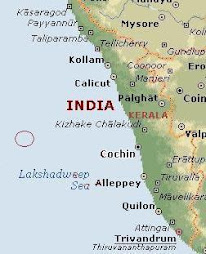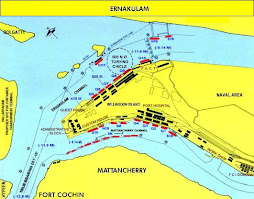(By V.M. Syam Kumar, Advocate, Cochin.)(Lecturer for Maritime Law, National University for Advanced Legal Studies, Kochi.)
The Subordinate Judge’s Court at the Port City of Cochin, Kerala, India has dismissed a suit filed against the Shipping Line alleging delay in delivery of cargo of cashew kernels at Thesseloniki, Greece inter alia holding that the relevant bill of lading did not reveal the contract of affreightment to be a time bound delivery shipment. The Learned Judge dismissed the Suit filed against the Shipping Line and also directed the Plaintiff - Shipper to pay costs of the litigation to the Shipping Line.
After a detailed trial based on the pleadings, the Learned Judge examining the facts and circumstances of the case in the light of the Indian Carriage of Goods by Sea Act held to the effect that if the bill of lading or any other document evidencing contract of affreightment does not contain a specific undertaking regarding time bound delivery, no liability can be fixed on the shipping line alleging delay in delivery if the carrier has transported the cargo as expected of a prudent carrier.
The relevant points from the judgment:
‘It cannot be argued that the plaintiff is not bound by the terms and conditions of Ext. A7 bill of lading. Clause 5 of Ext. A7 stipulates that there was no guarantee as regards arrival time and further that the defendants also will not be liable for any consequential damage due to delay’
‘It is established and well known in the custom and regular practice of shipping trade from Kochi that in so far as two or three transshipments have to be undertaken and concomitant logistical requirements are to be complied with according to the defendants goods consigned from Kochi to Thesseloniki in Greece will by no stretch of imagination would reach the destination within the days as contended by the plaintiff.’
‘It is specifically contended by the defendants that the usual/normal customary practice and experience reveals that the period within which the cargo container was transported and delivered at Thesseloniki in Greece is a reasonable period and cannot be termed as averred (by the plaintiff) above abnormal, unbelievable, inordinate or exceptional. Of course no exceptional urgency for delivering the cargo at destination on fixed date or time bound manner was pointed out either in Ext. A7 or by the plaintiff. Of course this fact has been admitted by the plaintiff in the plaint. As such as all these are the contentions of the either side, the question to be considered is whether the first defendant performed the contract in normal customary manner as is expected from a prudent carrier vide the contract of affreightment evidenced by Ext. A7 bill of lading. The plaintiff never approached the defendants pointing out any commitment for delivery in a time bound manner and no such request was ever made to the defendants by the plaintiff.’
Thus examining the evidence in detail the Hon’ble Court dismissed the suit awarding cost to the shipping line. This in my view is a landmark judgment which would set a good precedent in Indian maritime law.
After a detailed trial based on the pleadings, the Learned Judge examining the facts and circumstances of the case in the light of the Indian Carriage of Goods by Sea Act held to the effect that if the bill of lading or any other document evidencing contract of affreightment does not contain a specific undertaking regarding time bound delivery, no liability can be fixed on the shipping line alleging delay in delivery if the carrier has transported the cargo as expected of a prudent carrier.
The relevant points from the judgment:
‘It cannot be argued that the plaintiff is not bound by the terms and conditions of Ext. A7 bill of lading. Clause 5 of Ext. A7 stipulates that there was no guarantee as regards arrival time and further that the defendants also will not be liable for any consequential damage due to delay’
‘It is established and well known in the custom and regular practice of shipping trade from Kochi that in so far as two or three transshipments have to be undertaken and concomitant logistical requirements are to be complied with according to the defendants goods consigned from Kochi to Thesseloniki in Greece will by no stretch of imagination would reach the destination within the days as contended by the plaintiff.’
‘It is specifically contended by the defendants that the usual/normal customary practice and experience reveals that the period within which the cargo container was transported and delivered at Thesseloniki in Greece is a reasonable period and cannot be termed as averred (by the plaintiff) above abnormal, unbelievable, inordinate or exceptional. Of course no exceptional urgency for delivering the cargo at destination on fixed date or time bound manner was pointed out either in Ext. A7 or by the plaintiff. Of course this fact has been admitted by the plaintiff in the plaint. As such as all these are the contentions of the either side, the question to be considered is whether the first defendant performed the contract in normal customary manner as is expected from a prudent carrier vide the contract of affreightment evidenced by Ext. A7 bill of lading. The plaintiff never approached the defendants pointing out any commitment for delivery in a time bound manner and no such request was ever made to the defendants by the plaintiff.’
Thus examining the evidence in detail the Hon’ble Court dismissed the suit awarding cost to the shipping line. This in my view is a landmark judgment which would set a good precedent in Indian maritime law.



























